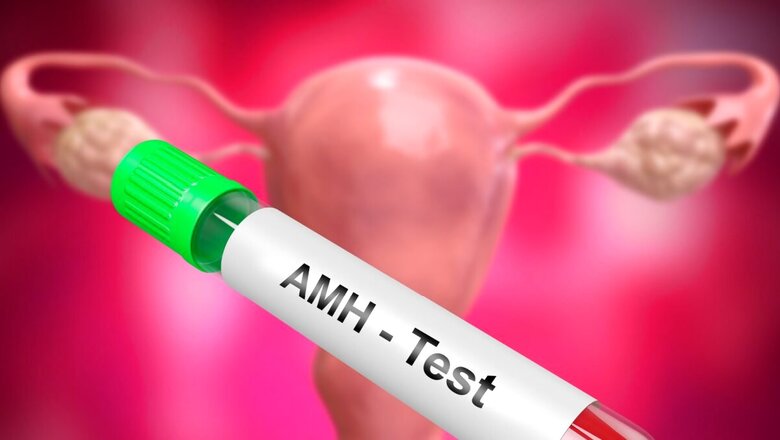
views
Anti-Müllerian Hormone (AMH) plays a crucial role in female fertility by assisting in regulating the growth and development of eggs within the ovaries. AMH level is commonly used as a biological marker to evaluate a woman’s ovarian reserve, providing the insight of the quantity of viable eggs remaining in her ovaries. The hormone is present in females from birth and gradually decreases as a woman approaches menopause.
AMH Levels and Female Fertility: The significance of AMH Levels in female’s fertility journey
AMH, an ovarian hormone generated from small follicles, plays an important role in determining the amount of eggs present in a woman’s ovarian reserve at the given time frame. The AMH test is a simple blood test that can be done on any day of the menstrual cycle. Low AMH levels indicate a low ovarian reserve and signals avoiding further delayed towards conception for aspiring parents. Low AMH levels are caused by age, genetics, after-effects of medical treatments such as chemotherapy, endometriosis, ovarian surgeries, autoimmune diseases such as lupus or rheumatoid arthritis, and prolonged exposure to environmental toxins.
On the other hand, higher AMH levels indicate a larger egg count and an greater outcome of successful pregnancy. However, high AMH levels also raise concerns about the potential presence of polycystic ovary syndrome (PCOS). Moreover, high AMH with the prevalence of PCOS also increases the risk of health issues like type 2 diabetes, heart-related problems, and metabolic problems. Furthermore, elevated AMH levels also lead to ovarian hyperstimulation syndrome (OHSS), a condition reduces the success rate of fertility treatments.
An AMH level above 2 ng/ml is perferred, indicating a healthy ovarian reserve, while levels below 1 ng/ml are considered low warning a diminished reserve. Individuals with polycystic ovaries often exhibit elevated AMH levels, surpassing 3.5 ng/ml. The decline in AMH levels with age is evident, with younger women typically having levels above 3.5 ng/ml, while those over 40 tend to have levels below 1 ng/ml.
AMH Enrichment: Lifestyle Changes for Improved Fertility
While it is not possible to bring about a drastic increase in AMH levels or avoid the natural decline in ovarian reserve, there are several steps that women can take to enhance overall fertility and improve egg quality:
- Adopting Healthy HabitsAdopting a healthy lifestyle positively impact fertility and support individuals with low AMH levels. These include healthy lifestyle changes such as maintaining a well-balanced diet with a conscious effort to reduce junk and calorie intake, engaging in regular physical activity to avoid adverse effects of sedentary lifestyle, managing stress effectively and avoiding substance abuse such as tobacco and excessive alcohol.
- Supplement IntakeCertain supplements, such as Coenzyme Q10 (CoQ10) and dehydroepiandrosterone (DHEA) aid in the enhancement of egg quality for women with low AMH levels. Supplements supports for the body’s metabolic processes, which hence, helps in improving the quality of produced follicles.
- Reducing Exposure to Environmental ToxinsSpecific environmental toxins present in everyday items such as soap, dishwasher, liquid detergents, floor cleansers, cigarette smoke and certain plastics negatively influence fertility. Minimizing exposure to these toxins support overall fertility and contribute to enhanced egg quality.



















Comments
0 comment